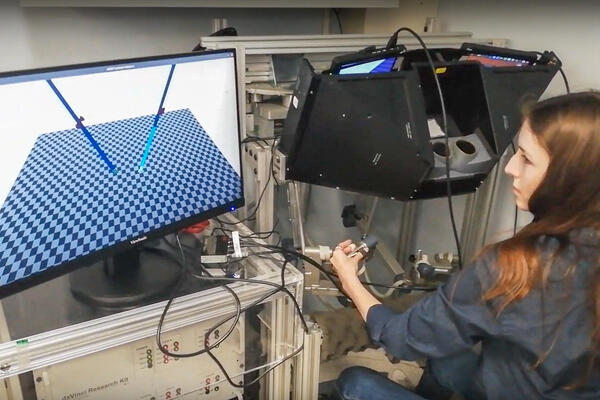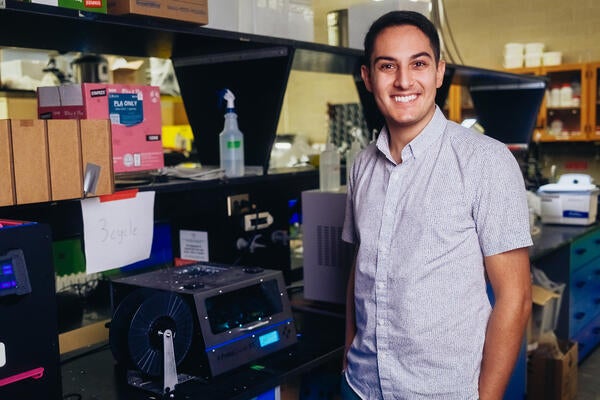
New technology makes artificial intelligence more private and portable
Technology developed at the University of Waterloo is paving the way for artificial intelligence (AI) to break free of the internet and cloud computing

Technology developed at the University of Waterloo is paving the way for artificial intelligence (AI) to break free of the internet and cloud computing
By Media RelationsNew deep-learning AI software produced with that technology is compact enough to fit on mobile computer chips for use in everything from smartphones to industrial robots.
That would allow devices to operate independent of the internet while using AI that performs almost as well as tethered neural networks.
“We feel this has enormous potential,” said Alexander Wong, a systems design engineering professor and Waterloo and co-creator of the technology. “This could be an enabler in many fields where people are struggling to get deep-learning AI in an operational form.”
The use of stand-alone deep-learning AI could lead to much lower data processing and transmission costs, greater privacy and use in areas where existing technology is impractical due to expense or other factors.
Deep-learning AI, which mimics the human brain by processing data through layers and layers of artificial neurons, typically requires considerable computational power, memory and energy to function.
Researchers took a page from evolutionary forces in nature to make that AI far more efficient by placing it in a virtual environment, then progressively and repeatedly depriving it of resources.
The deep-learning AI responds by adapting and changing itself to keep functioning each time computational power and memory are taken away.
“These networks evolve themselves through generations and make themselves smaller to be able to survive in these environments,” said Mohammad Javad Shafiee, a systems design engineering research professor at Waterloo and the technology’s co-creator.
In work recently presented during the International Conference on Computer Vision in
Venice, Italy, the researchers achieved a 200-fold reduction in the size of deep-learning AI software used for a particular object recognition task.
When put on a chip and embedded in a smartphone, such compact AI could run its speech-activated virtual assistant and other intelligent features, greatly reducing data usage and operating without internet service.
Other potential applications range from use in low-cost drones and smart grids, to surveillance cameras and manufacturing plants, where there are significant issues around streaming sensitive or proprietary data to the cloud.
Wong and Shafiee, who have co-founded a company called DarwinAI to commercialize their efficient AI software, were “amazed” at the results when they first attempted their approach to evolving deep-learning AI about three years ago.
“We are researchers, so we explore many different things,” said Shafiee. “And if it works, we keep going and push harder.”

Read more
With robotics, 3D technology, AI and more, Waterloo students are advancing the future of health care in Canada

Read more
New technology is five times more efficient than current desalination techniques

Read more
Study shows how academics and co-op at the University of Waterloo shape successful and innovative entrepreneurs through industry experience
The University of Waterloo acknowledges that much of our work takes place on the traditional territory of the Neutral, Anishinaabeg, and Haudenosaunee peoples. Our main campus is situated on the Haldimand Tract, the land granted to the Six Nations that includes six miles on each side of the Grand River. Our active work toward reconciliation takes place across our campuses through research, learning, teaching, and community building, and is co-ordinated within the Office of Indigenous Relations.